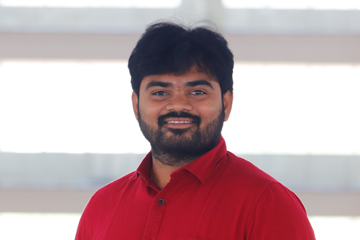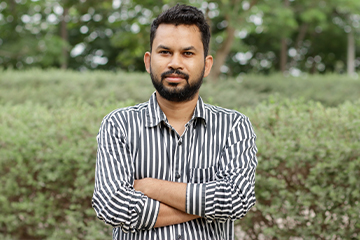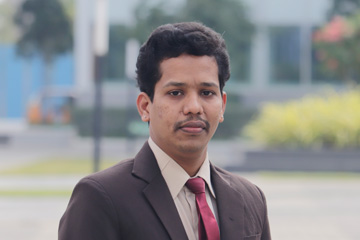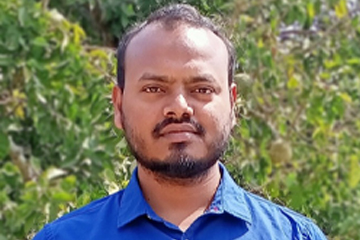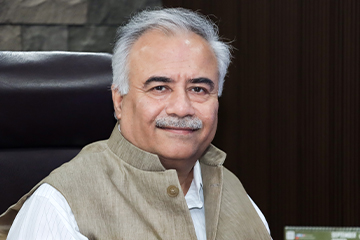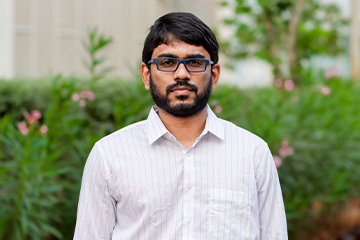SRM University-AP > Department of Civil Engineering > Research Areas
1. Structural Engineering
Participating faculty
Assistant Professor and Faculty Coordinator
bhagathsingh.g@srmap.edu.in
Assistant Professor
arijit.s@srmap.edu.in
Major Research areas:
Vibration Control of Structures, Base Isolation System, Uncertainty Quantification and Probabilistic Risk Assessment, Reliability-Based Design of Structures, Life-cycle-cost Based Design Optimization and Resilience of the Structural System, Small Scale Experimental Investigation using Shake Table Test, Seismic Hazard Analysis, Multi-hazard Risk Assessment, Nonlinear Analysis and Seismic Resistant Design of Reinforced Concrete Buildings, Seismic Response Evaluation of Buildings Considering Soil-Structure Interaction Effects, Application of artificial intelligence.
Material characterization, microstructure, sustainable construction materials, low energy binders, fly ash-based geopolymers, magnesium cement, limestone calcined clay cement, nucleation seeding, carbonation, cellular concrete, high volume fly ash concrete, self-compacting concretes, concrete admixtures, 3D concrete printing, non-destructive testing and durability of concrete.
2. Geotechnical Engineering
Participating faculty
Assistant Professor
raviteja.k@srmap.edu.in
Major Research areas:
The research work mainly focused towards rendering reliability and probability design improvements for Geotechnical and Geoenvironmental Engineering systems. Assessment of variability and spatial heterogeneity associated with the Geotechnical design parameters. Development of sustainable Geosynthetic-Clay liners for MSW containment facility using industrial by-products. Application of probabilistic optimization and GMM for the design improvements in MSW landfill slope stability analysis. Sustainable amelioration of problematic soils using industrial by-products.
Assistant Professor
pranav.rt@srmap.edu.in
Major Research areas:
Drones and advanced sensors for civil engineering applications and heritage conservation, Pavement Geotechnics and Reliability-based pavement designs, Nanocomposites and advanced materials for soil stabilisation and structural surface protection, Heritage structure conservation and sustainable protection strategies.
3. Environmental Engineering
Participating faculty
Assistant Professor
siddhant.d@srmap.edu.in
Major Research areas:
This research work is primarily focused on the treatment of water and wastewater systems focusing on the emerging contaminants like micro and nano plastics, carcinogenic compounds etc.
This research focuses on all the aspects of aquatic ecology, primarily wetlands. This includes application of Environmetrics in assessment of water quality, sedimentology, heavy metal contamination in wetland ecosystems, and nutrient dynamics for assessing the eutrophication problems.
The problem of the current world is handling and mansing waste produced. Hence, this research domain primarily focuses on different aspects of waste management, including solid waste, industrial and municipal waste, etc., and converting them into useful products that will help in waste reduction. This domain also focuses on the principle of waste to energy concept, wherein different wastes will be converted into sustainable products that are energy efficient.
4. Water Resources Engineering
Participating faculty
Assistant Professor
ainalhoque.g@srmap.edu.in
Major Research areas:
Scour under the Combined Action of Waves and Current, Mathematical Modeling of Scour, Fluid Structure Interaction, Hydrodynamics and CFD on Scour by OpenFOAM, Reef3D.
5. Transportation Engineering
Participating faculty
Assistant Professor
umamaheswar.a@srmap.edu.in
Major Research areas:
Materials, Management, and Design, Sustainability and Cost-effectiveness, Transportation Engineering
6. Geospatial Technology
Participating faculty
Vice Chancellor
manoj.a@srmap.edu.in
Assistant Professor
harish.p@srmap.edu.in
Major Research areas:
Digital Image Processing, Machine Learning, Soft Computing, Hazard and Risk Studies. GIS for Renewable Energy, Urban planning, Land use management, and Urban growth modelling.
Terrestrial remote sensing, 3D city modeling, Nexus between urban composition and environmental parameters, Multi-criteria-based decision-making (MCDM)-GIS-based tools, Urban heat island studies, Air pollution mapping, and mitigation strategies.
UAVs for asset management, Crop health monitoring, and yield estimation.


